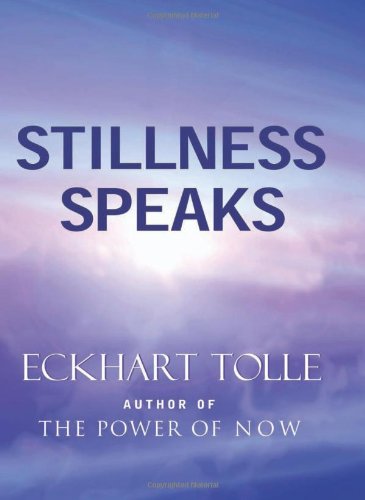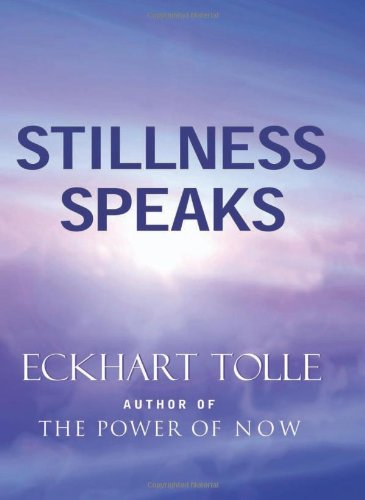
addressing the needs of the modern seeker by drawing from all spiritual traditions. At the core of the book is what the author calls “the state of presence,” a living in the “now” that is both intensely inspirational and practical. When the pressures of future and past thinking disappear, fear and frustration also vanish, conquered by the moment. Stillness Speaks takes the form of 200 individual entries, organized into 10 topic clusters that range from “Beyond the Thinking Mind” to “Suffering and the End of Suffering.” Each entry is concise and complete in itself, but, read together, take on a transformative power.
Expanding on his mantra—Get out of your head and into the moment—Eckhart Tolle offers this new book on living in the now. Here Tolle emphasizes the art of “inner stillness”–the place where thoughts, ego and attachments fall always and we are left only with what the moment has to offer: “When you lose touch with inner stillness, you lose touch with yourself. When you lose touch with yourself, you lose yourself in the world.” Don’t expect this to be a quick skim or even a straight-through read. Like his previous bestselling book The Power of Now, Tolle uses brief entries and numerous white spaces to give readers easy in-and-out access into enticing spiritual insights that expound on inner stillness, such as learning the difference between surrender and resignation, overcoming the fear death, and how to end suffering. In fact, this is designed to be an ongoing conversation. Pick it up any time or any place, but be sure to allow for plenty of breaks for serious contemplation. Even as you occasionally abandon the book, don’t abandon the teachings, pleads Tolle. Embracing and practicing inner stillness is no longer a luxury, he writes, “but a necessity if humankind is not to destroy itself. At the present time the dysfunction of the old consciousness and the arising of the new are both accelerating. Paradoxically things are getting worse and bett! er at the same time, although ‘the worse’ is more apparent because it makes so much noise.” Devotees who have read all of Tolle’s books and audio tapes probably won’t find new ideas or information here. But they may appreciate the refresher course –revisiting familiar concepts in a slightly different package. —Gail Hudson

